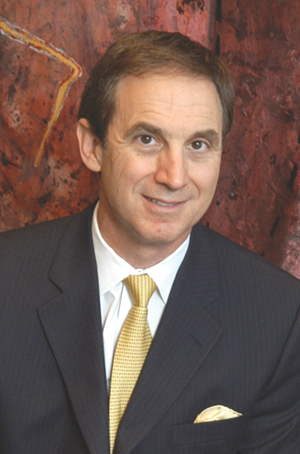With the 2011 campaign promising to open the field to new blood, the Law Society of Upper Canada kicked off its bencher election tour last week at Osgoode Hall.

Former treasurer Derry Millar hosted the first bencher election information session for prospective candidates on Dec. 6 along with his successor Laurie Pawlitza and fellow Bencher Larry Banack.
Next year’s election will be the first since the LSUC’s governance reforms that limited benchers to a maximum of three four-year terms.
“We expect more bencher turnover in this election and in the coming years,” Pawlitza said. “Our next four years, we expect to be just as busy as the last four, which is why we’re hosting these sessions.”
Lawyers will pick 40 benchers, with 20 from inside Toronto and a further 20 from elsewhere. There will be at least four vacancies in the Toronto area as benchers who have already served more than 15 years make way for new blood. They include Gary Gottlieb, Bob Aaron, Banack, and Millar.
Outside Toronto, there are two open spots to replace Heather Ross and Gerald Swaye. Current benchers who have already served three terms can run again under grandfather clauses in the bylaws passed earlier this year.
The panel travelled to Sudbury, Ont., on Dec. 8 and over the next couple of months will head to Kitchener, London, Barrie, Ottawa, Windsor, Oshawa, Sault Ste. Marie, and Thunder Bay ahead of the nomination deadline of Feb. 11.
Polls will open shortly after that date and will close on April 29. In the meantime, Banack warned those considering a run that it can take its toll on home life. With committee days, Convocation, task forces, and disciplinary matters, the time commitment builds up quickly.
According to Banack, law society business has eaten up about one-quarter of his daylight billable hours since his election in 1995. Still, he has made up the time through evening and weekend work.
“It’s your family who pick up the slack when you don’t make it home at a reasonable hour,” he said.
But there’s an upside, Banack said. The hard work pays off in the results achieved and the kudos attached to the position.
“I have no doubt that participating here not only made me a better lawyer but I can also see that the clients and lawyers who dealt with me also perceived I was a better lawyer,” he said. “And when you look back, you see the change that you have helped effect.”
Millar, who won’t return to Convocation despite being entitled to under grandfathered rules for former treasurers, said he saw a return on the investment he put in with his long hours of work at the law society. “It’s one of the best things I’ve done in my career.
The issues that you get to deal with affect the profession; they affect paralegals; and they affect the independence of the bar. It’s very important to the profession and it’s very interesting work.”
Vivene Salmon, a 2010 call currently in sole practice in Toronto, is considering a run. Young lawyers aren’t a well-represented group at Convocation - Jennifer Halajian is the most junior lawyer with 11 years of experience - and Salmon believes she has a chance if she can mobilize colleagues in her demographic.
She plans to rely more on social media than traditional forms of campaigning, a successful tactic in the political campaigns of U.S. President Barack Obama and Naheed Nenshi in Calgary’s mayoral race.
In any case, she was scared off by the $18,000 cost of mailing campaign materials to the entire electorate.
“I’m part of a generation that isn’t really engaged, but they become engaged when someone runs who appeals to them,” she says.
“I don’t really think the bencher election is high on their radar right now. Most are focused on the next hurdles in their careers: getting the first job and building a practice. But I think you can appeal to them.”
Rob Levan, another recent call from Toronto, says his campaign will also have a strong electronic flavour. “It’s all about engagement electronically. Everyone’s on their laptops and iPads at all times, and if you can just pull them in for 30 seconds and get them to remember your name, you have a shot.”
Levan is determined to make his way into Convocation at some stage even if he can’t manage it on the first try. “I’ll keep going for it, this time and the next time, until I get elected,” he says. “But win or lose, I’m dedicated to the experience.”
Should Salmon and Levan make the cut, Pawlitza’s comments suggested their input could be useful. In fact, she noted that the large number of students coming through the licensing process and the shortage of articling positions are among her most pressing concerns, issues younger lawyers would be well aware of.
Pawlitza also said she was concerned with the aging of the bar in communities beyond the major metropolitan centres. While 41 per cent of the profession is over 50, that figure tops 60 per cent in rural areas such as Grey and Bruce counties.
“It means entire communities are going to find themselves without any local counsel,” Pawlitza said.
For more on the law society's governance reforms, see "
LSUC votes to endlife terms."

 Former treasurer Derry Millar hosted the first bencher election information session for prospective candidates on Dec. 6 along with his successor Laurie Pawlitza and fellow Bencher Larry Banack.
Former treasurer Derry Millar hosted the first bencher election information session for prospective candidates on Dec. 6 along with his successor Laurie Pawlitza and fellow Bencher Larry Banack.